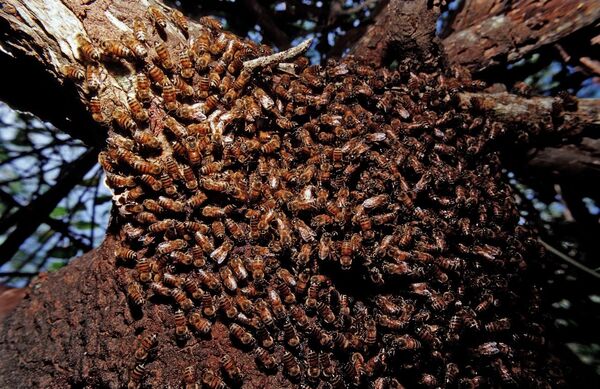EDINBURGH, 14 August (RIA Novosti), Mark Hirst – A 60 percent decline in the number of bumblebees in Scotland over the past 50 years has prompted calls by politicians and wildlife groups for a ban on certain pesticides thought to be responsible for the fall in numbers.
“Wild pollinators and honeybees contribute around £43 million [$72 million] to the Scottish economy through their role in crop pollination. They are also crucial to maintaining our biodiversity,” Liam McArthur a Member of the Scottish Parliament representing the island archipelago of Orkney told RIA Novosti.
“Yet over the last few decades, bee numbers have dropped dramatically,” McArthur added. “Even a voluntary ban would go some way to providing much needed extra protection.”
“It is estimated that two out of every three mouthfuls of food we put in our mouth are the result of the work of pollinators,” McArthur said.
“What more reason do we need to make sure we allow them to carry out doing their good work.”
The MSP’s call was backed by the Scottish Wildlife Trust which pointed to loss of habitat and specifically pesticides known as neonicotinoids.
“There is increasing evidence to show that neonicotinoids, applied as a pesticide seed treatment to protect crops such as oilseed rape from pests, harms bumblebees and honeybees by interfering with foraging behavior,” Maggie Keegan, head of Policy and Planning for Scottish Wildlife Trust, told RIA Novosti.
“The Trust believes there should be a permanent ban on using neonicotinoid seed coatings for crops such as oilseed rape,” Keegan added.
In a statement the Scottish Government said it was taking a “precautionary approach” to the issue before commissioning more research.
“It is essential, given concerns that have been expressed about the efficiency of previous Department for Environment Food & Rural Affairs funded field trials, that we await further research that clearly and properly demonstrates the nature and extent of risk that neonicotinoids pose to bees, and other pollinators, when they are foraging,” a Scottish Government spokesman said.


